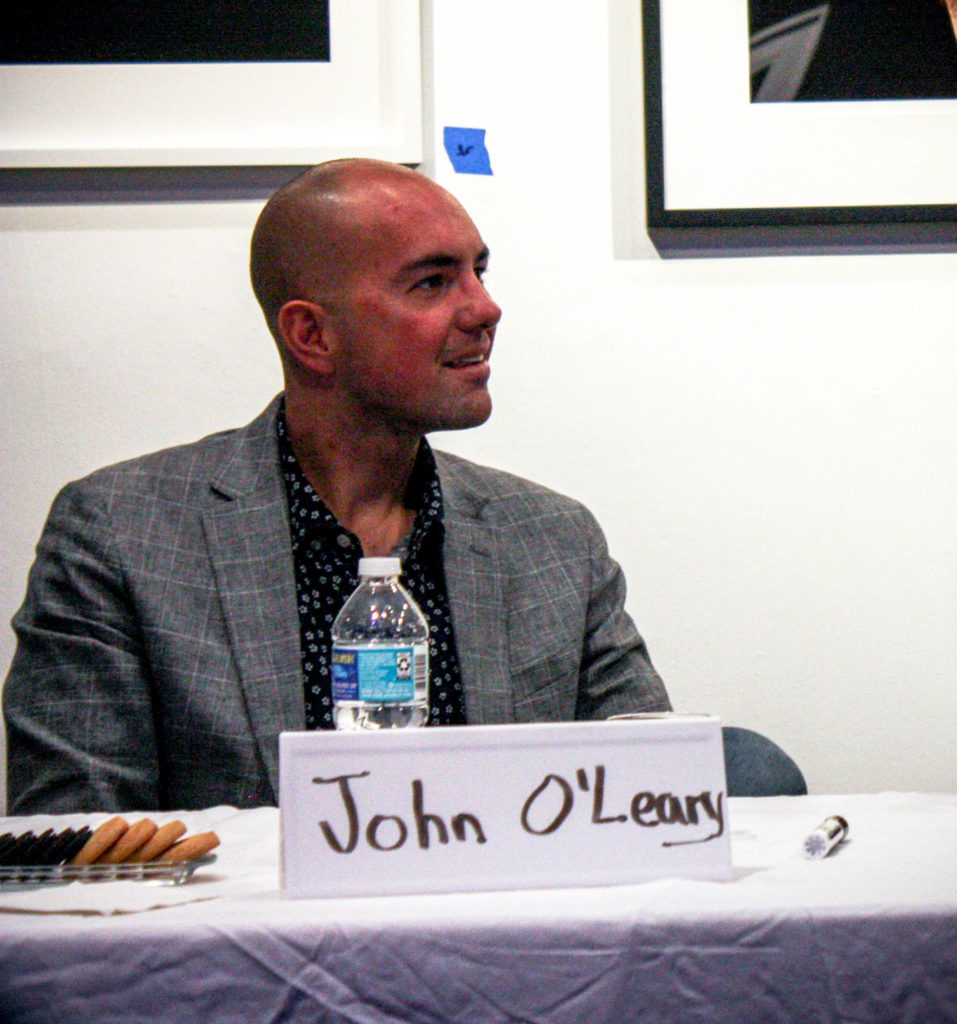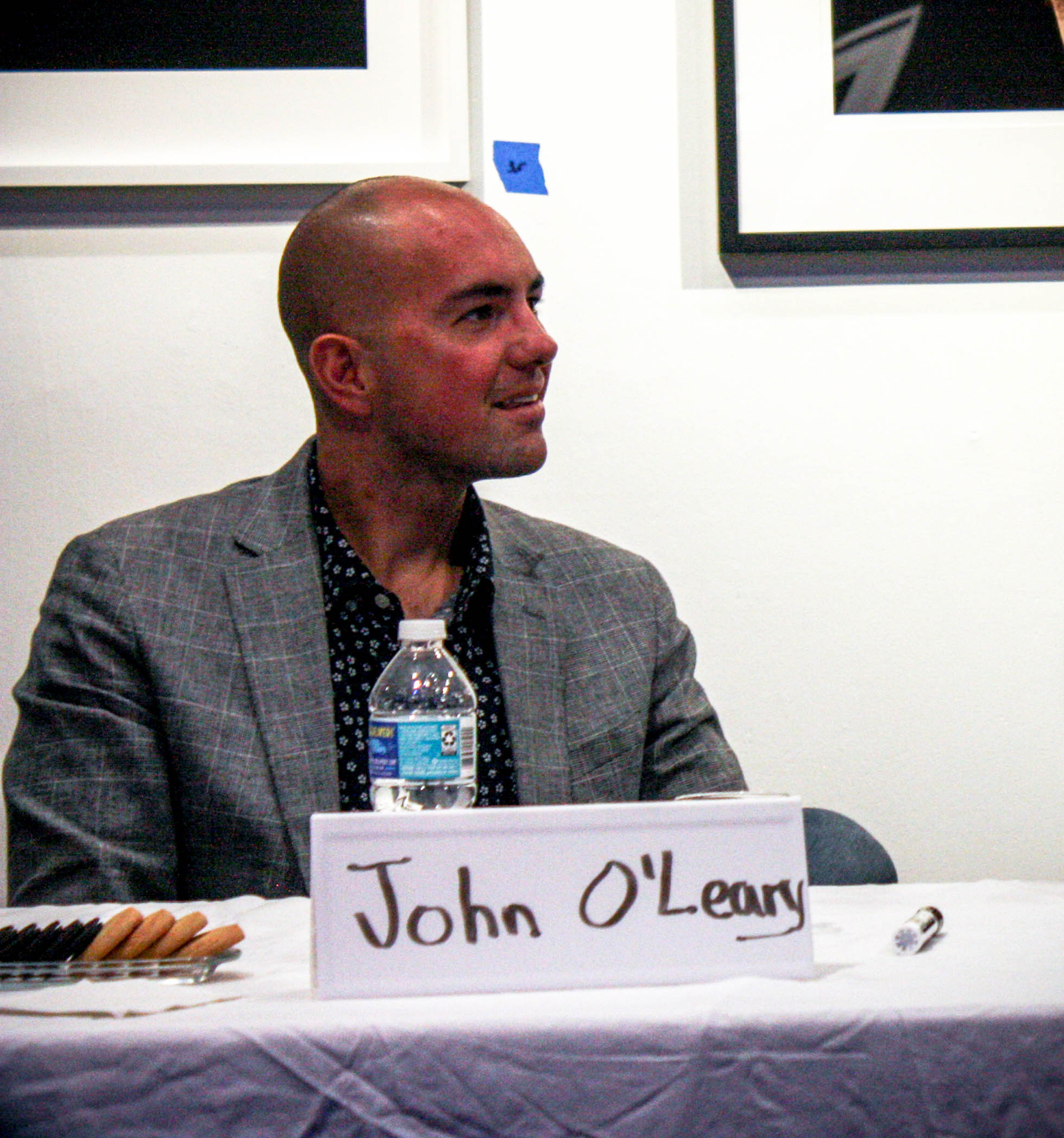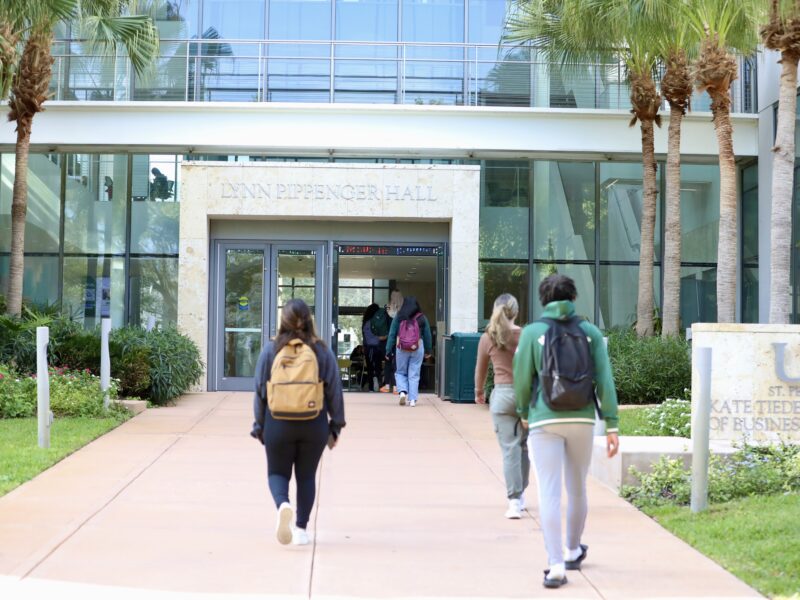
Story and photo by Dylan Hart
When John O’Leary was 7 years old, he got his first paid gig as a pianist.
“Somebody gave me 5 pesos to play them a song,” O’Leary said. “This lady said, ‘OK, mark this date, this is your first professional performance and there will be many more to come.’ I didn’t think of it, but now it’s like, ‘Oh, she was right.’”
Years later, at USF Tampa, O’Leary was studying the human brain. It would be a long journey, but he would eventually end up back where he started as a child.
O’Leary, now the pianist for St. Petersburg-based jazz trio La Lucha, joined a diverse cast of four other artists at Studio@620 for a panel discussing the local art scene.
Born in the Yucatan Peninsula in Mexico, he moved to the United States as a child and attended Zephyrhills High School. His musical origins are all too familiar to fellow pianists – he was forced to take lessons with an instructor for much of his childhood.
But somewhere along the way, O’Leary fell in love with it.
He attended USF Tampa, majoring first in tuba performance before switching to jazz piano. He met his future bandmates there and grew his love for the medium, gigging around the Tampa Bay area.
“I was moonlighting as a pianist,” he said. He was elated to get money for gigs, even if he didn’t think his skills were worthy.
But it soon turned out that O’Leary was trapped in a love triangle. The only thing that could surmount his love for music was his fascination with neuroscience. He even picked up a biology major alongside jazz piano.
“I was very scared about choosing a life in piano,” he said.
He majored in both, finished a predoctoral neuroscience program and even wrote a dissertation on Alzheimer’s Disease and stress.
But a year from graduation, he knew he had a choice to make. It was either he would continue down the academic path and become a full-fledged neuroscientist, like his father in Mexico wished for him, or he would go all in on music.
At a crossroads with no clear direction, O’Leary emailed a neuroscientist who had been there before — Dr. Charles Limb. Limb hosted a popular TED Talk in 2011 about his study on jazz pianists and the neuroscience behind improvisation.
Limb told him to take a year off and give music a try. “See if it’s for you,” O’Leary remembered him saying. Could he take the minimal pay, the stress of self-promotion and the mad navigation of a competitive music world?
La Lucha is living proof of O’Leary’s decision. He left science for a year in 2013 and he’s still playing music professionally, even with a wife and a son.
“I always knew I was going to make something — science or music, something,” he said. “It was always about creating, being a craftsman. That was always appealing to me.”
He doesn’t always get to play his original tunes, but playing jazz in local bars and getting a chance to show off his work every once in a while at big venues like the Palladium Theatre is good enough for him.
In O’Leary’s book, St. Petersburg is a great home base. He grew roots in the area while gigging and met his closest friends, the other two members of La Lucha, at USF.
“It was serendipitous that I ended up here,” he said. “When I came here, I never thought I could make a living playing jazz piano in Tampa Bay, but it works great. I love this area.”
Despite playing music since childhood, O’Leary always seeks inspiration in the world around him. He’s always looking for the next thing that can blow his mind, but he finds it in the small things, too. He spends a lot of his time just thinking of melodies and trying to piece the musical puzzle together in his head.
“It’s just so hard to shut off the art part of my brain,” he said. “Sometimes I wish I could so I could be more present in other things, but I’ve embraced part of that as who I am. It can be challenging, but it’s always there.”
Music bleeds into every facet of his life. He sings and taps rhythms on his lap “all the time.”
“My wife forbid me from lap-tapping because I was doing it so much,” he said, receiving roaring laughter from the crowd. “She’s trying to have a conversation with me and I’m thinking polyrhythms. It’s whenever you can squeeze it in.”
O’Leary may’ve played piano professionally from a young age, but he never felt like his work was fully his own until last year, when he released the album “CRISPR” — finally an opportunity to marry neuroscience and music.
If there’s any doctrine he’s followed to a T, though, it’s the philosophy of doing what you love without comparing yourself to others.
“Do your thing,” O’Leary advised the crowd. “If you’re happy with your life, then man, that’s awesome.”



